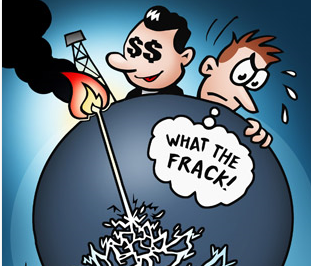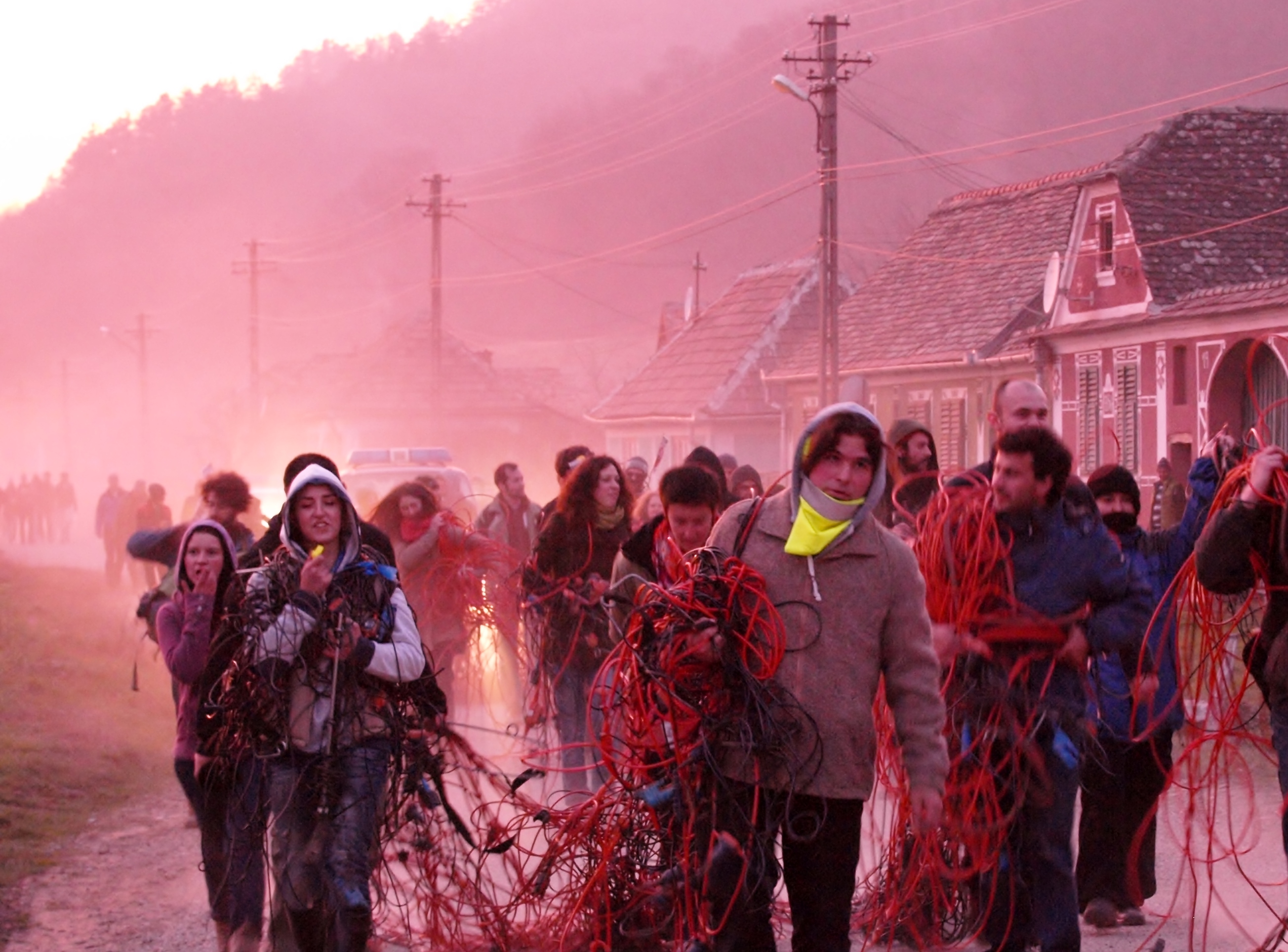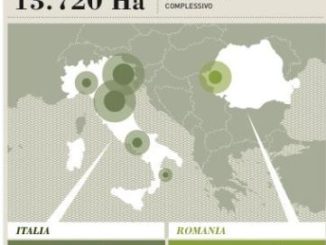
Written by: Derek Freitas, Food Chains Campaign Coordinator for Eco Ruralis
Shale gas and oil fracking (hydraulic fracturing) projects are ceasing all across Eastern Europe. Exploration wells are being abandoned and permits are being allowed to expire by several gas and oil giants like Chevron.
Romania
In November 2014, Victor Ponta, the Prime Minister of Romania said “It looks like we don’t have shale gas, we fought very hard for something that we do not have. I cannot tell you more than this but I don’t think we fought for something that existed.”
In the summer of 2014, Chevron was allowed a permit by the national government to drill in Silistea-Pungesti, a small village located in the county of Vaslui in northeastern Romania. After long non-violent protests (see picture below) were waged by locals, the riot police finally became violent and physically removed them from the area. Thus, the exploration well was finally constructed but not before nationwide solidarity protests occurred. One woman in Pungesti said “the children cry in their sleep … they are asking, ‘are we going to die? are we going to die?” These peasants have heard stories about the disastrous environmental impact that fracking can have on rural communities and are scared that their farming livelihoods and good health will be taken away by Chevron’s activities.

Chevron originally estimated that Romania could have 51 trillion cubic feet of shale gas beneath its surface. After their drilling and seismic operations have now been completed in Pungesti, the data suggests otherwise. They are now using the same old tired line … it is a business decision due to more favorable advantages in their global portfolio. Read between the lines … they didn’t find what they wanted to.
Chevron has three other concessions in Vaslui County and are interested in fracking exploration in the Danube Delta near the Black Sea but for now are concluding their work in Romania.
Poland
Poland was originally seen as the main site to initiate a shale gas boom in Eastern Europe in order to decrease energy dependence on Russian gas imports. Now, 7 out of 11 multinational companies have already stopped their activities including: Exxon, Talisman and Marathon. They did this simply because 40 wells resulted in very little gas extraction.
Starting in 2013, a 400 day protest of a Chevron fracking well has finally just ended in victory for the people of Zurawlow, Poland. Two months ago, Chevron announced its plans to stop fracking exploration in Poland. An occupation camp was set up by the group Green Zurawlow, made up of families from that locality and four nearby villages. They protested and blockaded the site of the well with agricultural machinery and tractors. Test wells have yielded poor results, protests and regulatory delays have turned investors away. One local said, “We made banners and placards and put posters up around the village. Only 96 people live in Zurawlow – children and old people included – but we stopped Chevron!”
Today, Poland’s state-controlled PGNiG is leading shale gas exploration however it is meeting harsh resistance in such potential well sites as the southeastern region of Tomaszów Lubelski. Hundreds of wells were originally planned to be built in Poland but just 66 have been completed due to heavy public resistance.
Other Eastern European Countries
Bulgaria
In 2011, Chevron received a permit to extract shale gas in Novi Pazar field located in northeastern Bulgaria. However, soon after a moratorium on this type of extraction prompted the company to lie dormant until laws changed … but they never did. So in May of 2014, Chevron decided to close its offices in the capital of Sofia and totally withdrew from gas exploration in the country. The United States Energy Information Agency says Bulgaria has 480 billion cubic feet of shale gas and 180 million barrels of shale oil.
Lithuania
In October of 2013, Chevron pulled out of its plans to build a fracking well in Silute-Taurage, Lithuania. This occurred one month after receiving the permit due to uncertain regulatory conditions according to the company.
Ukraine
In 2013, Shell Corporation was given a permit to perform shale gas exploration in Yuzivska field located in Eastern Ukraine. Simon Henry, Shell Chief Financial Officer, had said in 2014 that “We obviously need to assess the future security situation as it develops because the safety of our own people is our first priority.” What Mr. Henry is not sharing is how Shell has other large energy contracts in Russia which may create a conflict of interest for them in Ukraine. However, initial exploration in Kharkiv showed that there was very little gas deposits there. Therefore, gas and oil companies are playing politics in their own way to try to draw investors away from the fact that not that much gas is actually being found.
After withdrawing from each of these countries, Chevron and other gas and oil corporations are seeing dwindling opportunities for big profits in Eastern Europe. Their promises of energy independence from Russia are not bearing fruit and trust is eroding among the region’s governments and public. Environmental activists and rural folks know that the fight against fracking needs to continue but they should celebrate the successes that have thwarted these giant corporations and protected human health thus far.
Previous Arc2020 Article about Fracking




